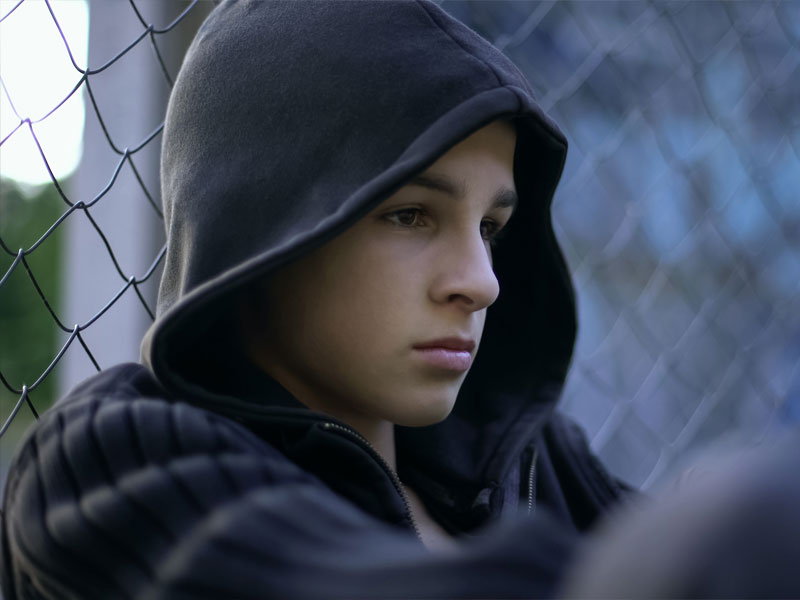
Tom was referred to KidsAid at age 14, just as he was on the verge of permanent exclusion from school. His behaviour had become volatile—frequent outbursts directed at teachers and classmates, often sparked by overwhelming emotions he couldn’t understand or control. Home offered little relief. Tension ran high, and Tom’s anger sometimes turned into aggression towards his mum, leaving their relationship fragile and strained.
Tom’s assessment revealed that beneath his disruptive behaviour lay a heavy, invisible burden. His chaotic actions mirrored the chaos he had grown up with—witnessing domestic violence and grappling with the deep emotional pain of being abandoned by his father. Often, Tom felt lost and frustrated, unable to understand or express his emotions. Most of all, he longed for someone who could help him feel safe, heard, and understood—but at that time, he didn’t believe anyone could.
In response to Tom’s needs, KidsAid recommended 25 sessions of therapy, offering him the time and space to build trust and slowly let down his guard.
From their very first session, Tom’s therapist focused on building trust—gently, consistently, and without pressure. Therapy was shaped around what felt natural for Tom as a teenager. He was given space to express himself through creative, sensory play: painting abstract art in vibrant colours, stretching and squishing slime, or releasing pent-up energy through fast-paced ball games. These weren’t just distractions—they became a vital language for Tom, a way to communicate what he couldn’t yet put into words.
At first, Tom remained distant and guarded. But week by week, as he came to trust that his therapist would keep showing up—without judgment or demands—he began to soften. Curiosity replaced defensiveness. Slowly, Tom began to speak.
The turning point came when he found the courage to share the painful memories he had buried deep inside. His therapist listened with warmth and empathy, helping him name emotions he had never fully understood before—fear, sadness, confusion, and anger. For the first time in a long while, Tom allowed himself to be vulnerable. He felt truly seen.
As therapy progressed, Tom developed healthier ways to cope. He became more reflective, more able to pause and think before reacting. With growing trust, he explored what safety meant to him and slowly rebuilt his capacity to connect with others.
By the end of his sessions, the changes in Tom were remarkable. At home, he was noticeably calmer and more present, allowing his relationship with his mum to begin to heal. At school, he became more engaged in learning, more respectful of boundaries, and more able to build positive relationships with peers and teachers. But perhaps the most powerful transformation was internal—Tom’s sense of self-worth began to take root. For a young person who had long felt invisible and undeserving, this growing confidence marked a significant turning point.
We are so proud of the progress Tom made during his time at KidsAid, and we wish him all the very best for a brighter, more hopeful future.